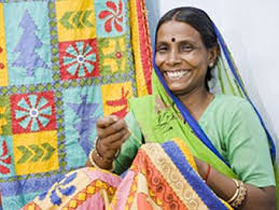NE NEWS SERVICE
AHMEDABAD, OCT 16
Reducing the entry-level capital requirement for entities wanting to enter the micro-insurance space will boost the sector and increase coverage of low-income families, the head of an Irdai-formed panel said on Friday.
The Insurance Regulatory and Development Authority of India (Irdai) had formed the Committee on the Standalone Micro-insurance Company in February 2020.
Irdai had released the report of the 10-member panel last week.
Among others, the report recommends lowering the entry-level capital requirement to Rs 20 crore from the current Rs 100 crore and allowing micro-insurance cooperative entities as well as companies to offer both life and non-life products.
The reduction in capital requirement would encourage more players to enter this sector, said Mirai Chatterjee, chairperson of the committee and director, SEWA Social Security.
Another key recommendation is amending the Insurance Act, 1938 to bring standalone micro-insurance under its purview and define it because there is no mention of such type of insurance business in the legislation, Chatterjee told reporters during a virtual press conference.
Further, the committee has recommended end-to-end digital technology for transparency, accountability, and monitoring.
The report argues that this will both reduce transaction costs over time and help in regulatory oversight, she said.
Micro-insurance is a mechanism to protect low-income individuals and families against the various risks that they frequently face in their lives, in exchange for insurance premium payments tailored to their needs, income, and level of risk.
Panel member Tirth Raj Mendiratta expressed concern about the low penetration of existing micro-insurance firms in the country, as he estimated that around 50 crore people from the low-income group can still be covered.
Since micro-insurance works as a tool for financial security too, its importance has increased significantly in present times due to the coronavirus pandemic, he added.
VimoSEWA, the insurance cooperative of the city-based Self-Employed Women’s Association (SEWA), is one of the key players in this business.
It currently has 1,00,000 policy-holders in five states.
Ashaben Ajmeri, the chairperson of VimoSEWA, stated that due to the pandemic and its adverse effects on personal health and income, people have now started realising the importance of micro-insurance, be it life or health insurance.










